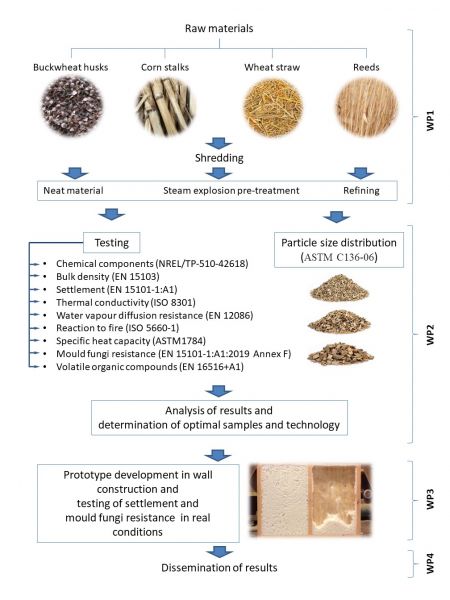Investigation of eco-friendly thermal insulation materials from sustainable and renewable industrial crops residuals
Project summary
The aim of the project is to develop new potential eco-friendly thermal insulation materials for building insulation from local crop residues such as wheat straw, buckwheat husks, corn and reed stems.
To achieve the project goal four work packages (WP) will be implemented: 1) Development of thermal insulation materials, 2) Testing and analysis of developed materials, 3) Development of prototypes and 4) Dissemination of results and technology transfer. For the development of new thermal insulation materials three different pre-treatments will be applied for raw crop residues: mechanical shredding and hydrothermal pre-treatment by steam explosion and refining. For the characterization of developed thermal insulation materials the following properties will be determined: chemical components, particle size distribution, bulk density, settlement, thermal conductivity, water vapour diffusion resistance, reaction to fire, mould fungi resistance, specific heat capacity, and volatile organic compounds. After the properties analysis of developed thermal insulation materials, at least 2 prototypes of the final products with the best properties will be fabricated in loose-fill form by blowing them into the wall structure and testing the settlement and resistance to fungi in real conditions. The obtained results would contribute to the scientific knowledge by sharing 5 research manuscripts and to the technology transfer allowing the further potential for commercialization.

Place of project implementation – Latvian State Institute of Wood Chemistry (LSIWC), Dzerbenes str. 27, Riga, LV-1006
Call, activity: Latvian Council of Science Fundamental and Applied Research Project 2021/1 (LCS FARP 2021/1)
Implementation of the project
